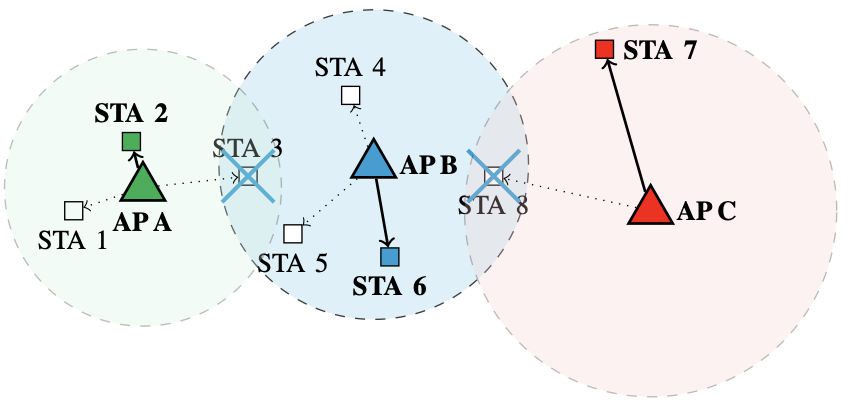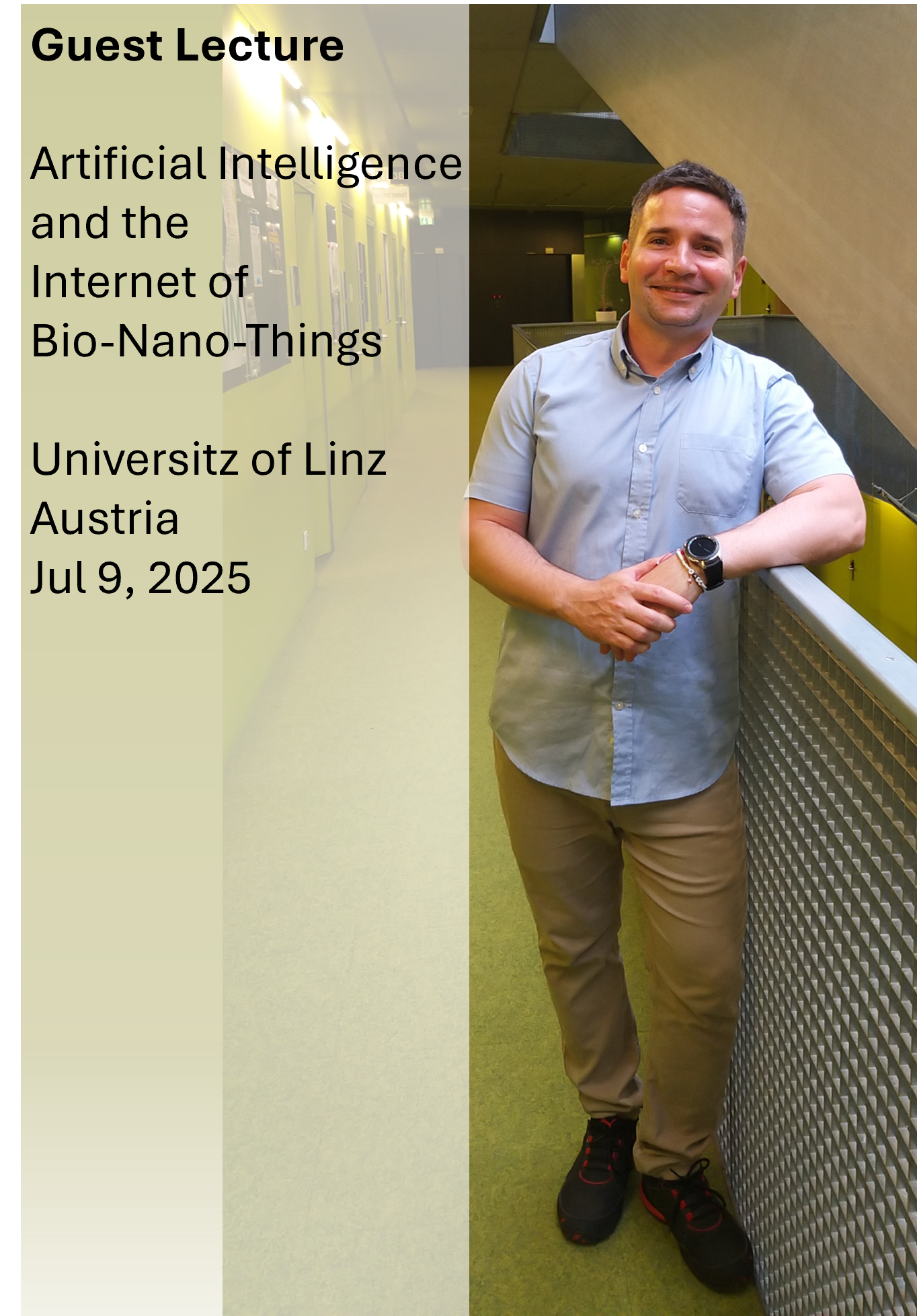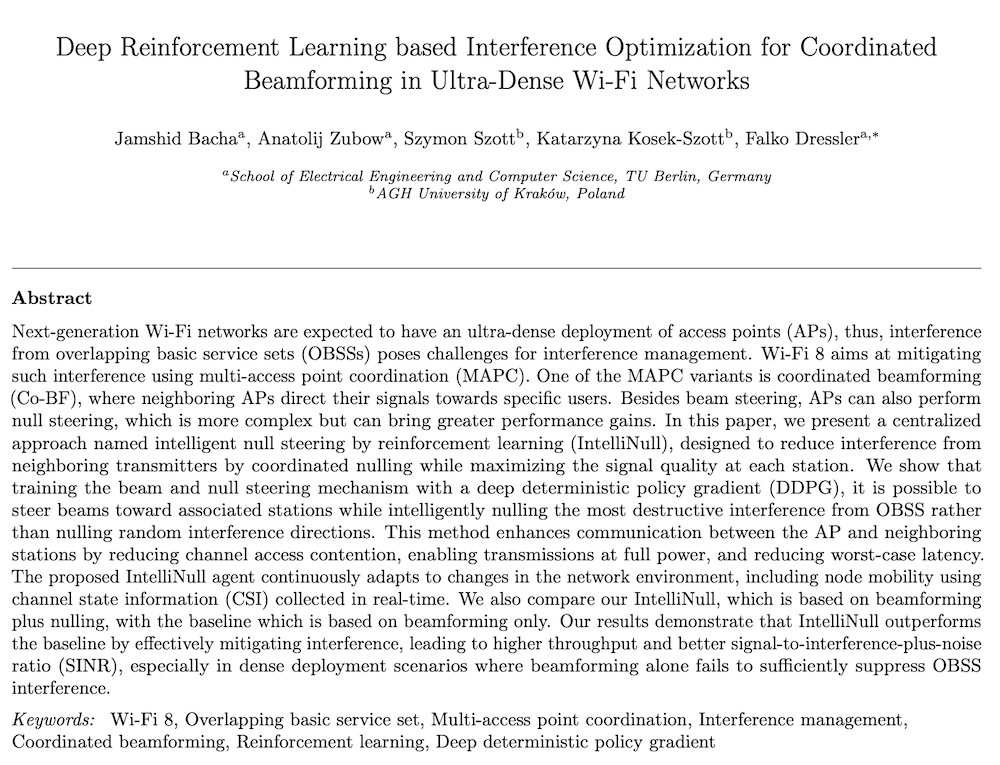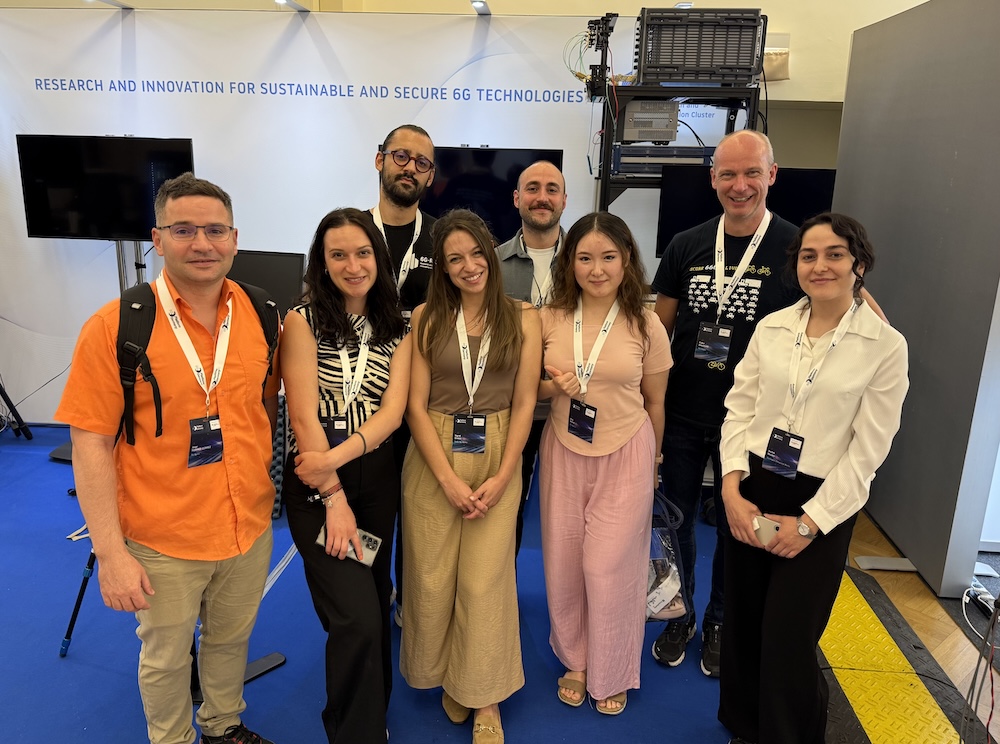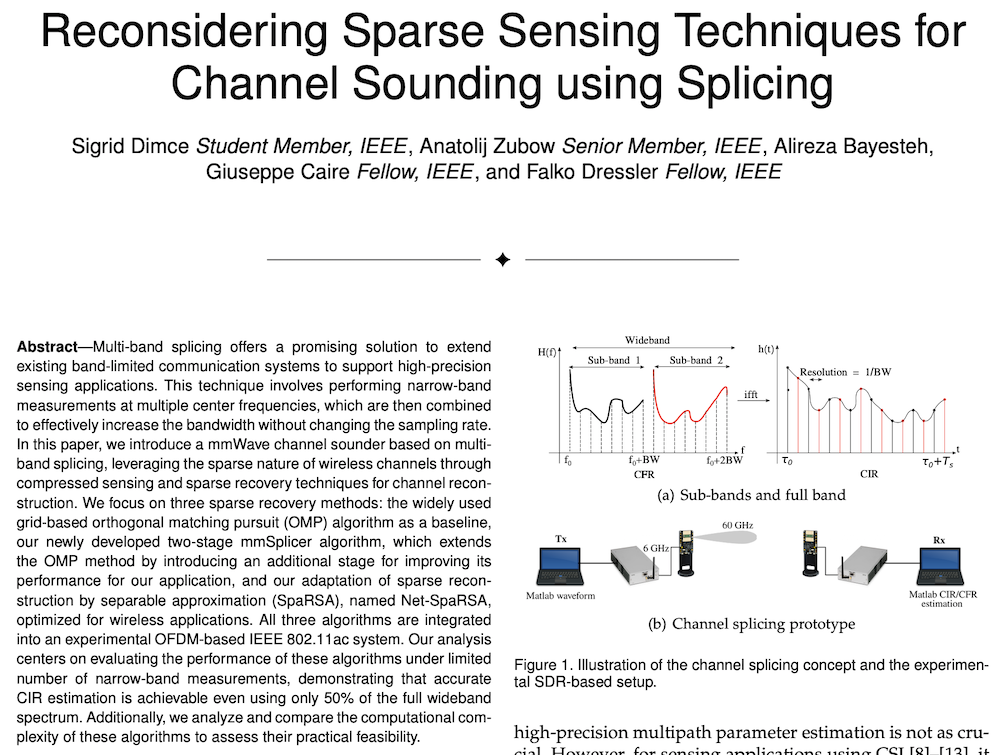Literature Database Entry
blobel2019wakeup
Johannes Blobel, "Energy Efficient Communication using Wake-up Receivers," Proceedings of International Conference on Networked Systems (NetSys 2019), PhD Forum, Munich, Germany, March 2019.
Abstract
For many years duty-cycling protocols in its various forms have been the standard way of achieving low energy consumption for communication systems. They do, however, lead to an increased delay and communication complexity and suffer from the inherent clock drift of the communicating nodes. Therefore the achievable energy savings and performance is limited. In recent years a new technology, called Wake-up receivers have been proposed that can solve these problems with an additional ultra low-power radio chip. In my PhD thesis I investigate how this technology can be used in various applications ranging from wildlife monitoring using sensor networks to low-power WLAN for the Internet-of-Things (IoT).
Quick access
Authors' Version ![]() (PDF on this web site)
(PDF on this web site)
BibTeX ![]()
Contact
BibTeX reference
@inproceedings{blobel2019wakeup,
author = {Blobel, Johannes},
title = {{Energy Efficient Communication using Wake-up Receivers}},
address = {Munich, Germany},
booktitle = {International Conference on Networked Systems (NetSys 2019), PhD Forum},
month = {3},
year = {2019},
}
Copyright notice
Links to final or draft versions of papers are presented here to ensure timely dissemination of scholarly and technical work. Copyright and all rights therein are retained by authors or by other copyright holders. All persons copying this information are expected to adhere to the terms and constraints invoked by each author's copyright. In most cases, these works may not be reposted or distributed for commercial purposes without the explicit permission of the copyright holder.
The following applies to all papers listed above that have IEEE copyrights: Personal use of this material is permitted. However, permission to reprint/republish this material for advertising or promotional purposes or for creating new collective works for resale or redistribution to servers or lists, or to reuse any copyrighted component of this work in other works must be obtained from the IEEE.
The following applies to all papers listed above that are in submission to IEEE conference/workshop proceedings or journals: This work has been submitted to the IEEE for possible publication. Copyright may be transferred without notice, after which this version may no longer be accessible.
The following applies to all papers listed above that have ACM copyrights: ACM COPYRIGHT NOTICE. Permission to make digital or hard copies of part or all of this work for personal or classroom use is granted without fee provided that copies are not made or distributed for profit or commercial advantage and that copies bear this notice and the full citation on the first page. Copyrights for components of this work owned by others than ACM must be honored. Abstracting with credit is permitted. To copy otherwise, to republish, to post on servers, or to redistribute to lists, requires prior specific permission and/or a fee. Request permissions from Publications Dept., ACM, Inc., fax +1 (212) 869-0481, or permissions@acm.org.
The following applies to all SpringerLink papers listed above that have Springer Science+Business Media copyrights: The original publication is available at www.springerlink.com.
This page was automatically generated using BibDB and bib2web.

